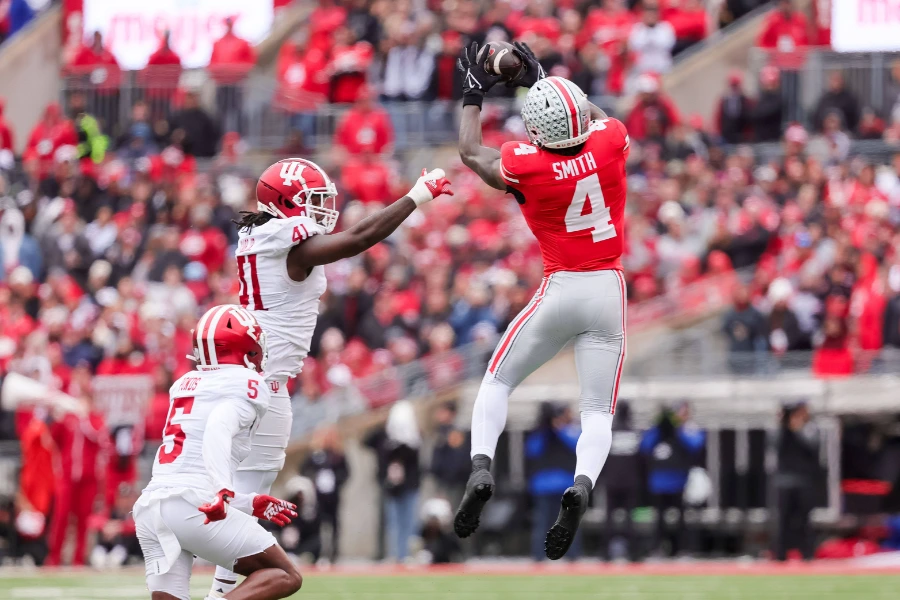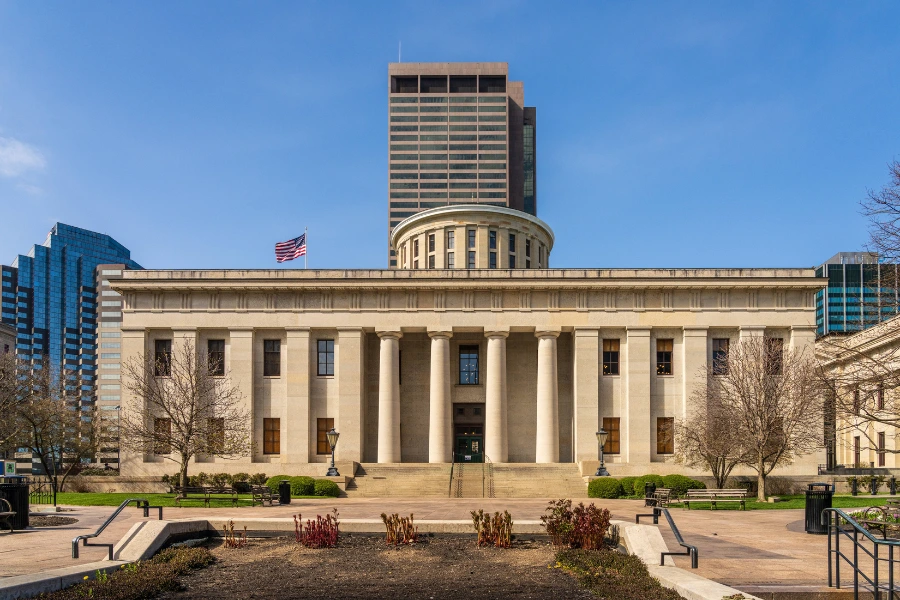Ohio Gov. Mike DeWine made the U.S. sports betting industry take notice recently when he included a line in his 4,000-page budget that would double the tax on sports betting operators from 10% to 20%.
That’s still a far cry from the 51% that some of the same operators are paying in New York State, and the hike would merely boost the tax to right around the national average
But is DeWine merely bluffing?
That’s hard to say – but what is clear is that he has been annoyed by a number of violations committed by online sportsbooks in Ohio just before and after the Jan. 1, 2023 launch of such legal gambling in the state.
“The companies that are doing the massive advertising need to be aware that they’re being looked at very closely by the governor and the Casino Control Commission in regard to statements that they are making,” DeWine told reporters in January. “We believe that at least on several occasions they’ve already crossed the line. My message to them is that this will not be tolerated in the State of Ohio.”
The violations include sending advertising enticements to underage customers and holding a gambling-related event on the campus of the University of Toledo.
So-called “free betting credits” offered in promotions also have drawn DeWine’s wrath.
“That’s a pretty clear line they cannot cross,” DeWine said. “I also think they must be very careful, candidly, in regard to the claim of ‘free money and free gaming.’ When you look at the fine print, or try to figure out what it really means, it doesn’t mean what certainly is being implied by the TV advertising.”
Timeline for budget approval
DeWine’s announcement was merely the start of the state budget process for fiscal years 2024 and 2025. Next, committees in the state House and Senate will spend months debating the merits of the various proposals.
“A budget that will be finally signed by me will be a compromise budget,” DeWine said.
Finally, a budget plan will be sent to DeWine’s desk to be signed on June 30.
So if the state’s gambling operators continue to commit regulatory violations, DeWine likely will feel emboldened to continue to push for the tax hike. If not, lobbyists for the numerous operators will have plenty of time and opportunity to push for deletion of the boost in the tax.
The issue is not just limited to gambling in Ohio. If one state enacts a new, higher tax after the launch of sports betting lawmakers in other states could be tempted to do the same – leaving operators unclear on whether offering gambling in those states makes financial sense when the bottom-line costs could change at any time.
The road to legal betting in Ohio
More than half of U.S. states – 32, to be exact – had legal sports betting options available before Ohio finally came aboard on Jan. 1.
The state legislature agreed to approve the new gambling in December 2021, and at first, it was believed that Ohioans would be able to start wagering in time for football season in September 2022. But the Ohio Control Commission elected to ignore that artificial deadline in favor of taking more time to ensure that proper regulations were in place.
The state also has approved more than 1,000 locations around the state to offer sports betting – such as bars, restaurants, gas stations, and bowling centers – in addition to opportunities at casinos and racetracks as well as the legalization of mobile sports betting.
DeWine and a number of lawmakers have said that letting other states go forward first meant that Ohio regulators could learn from any potential mistakes made in other states. The best example is the offering of those $1,000 or more “risk-free bets” upon signup that have been widely panned by responsible gambling officials across the U.S.
The delay in the launch of sports betting enabled Ohio lawmakers to become the first in the country to ban “risk-free” language in marketing by the operators. In early February, the NBA formally banned the phrase from any betting advertising that includes the league’s logo.
If operators in Ohio hadn’t already recognized the urgency of avoiding the offending phrase, DeWine’s threat to double the state’s sports betting tax surely got their attention.
So is the Governor bluffing? If the operators play their cards right, the final budget will not include the tax hike – and they’ll never know for sure.





